Washing fruits and vegetables is often an overlooked step in a daily diet routine. However, this simple act plays a critical role in ensuring food safety and maintaining good health. Unwashed produce can be a carrier of various contaminants, from pesticides to harmful microorganisms, posing significant health risks. This article highlights the importance of cleaning our fruits and vegetables, the types of contaminants present, and the health risks they pose. It will also explore the role of pesticides in agriculture and the effectiveness of various washing techniques, emphasizing the necessity of this practice for a healthy lifestyle.
Contents
Identifying Contaminants on Produce
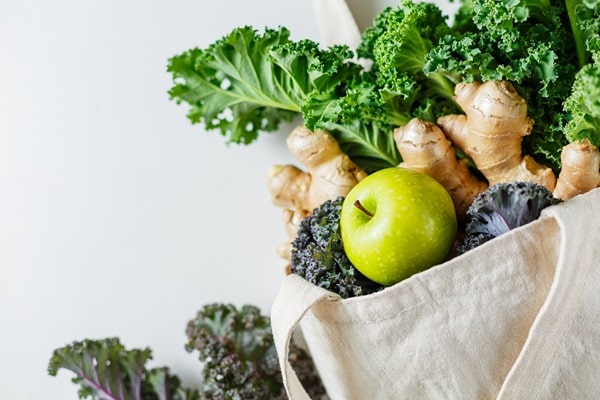
Fruits and vegetables, while being essential components of a healthy diet, can carry a range of contaminants. These contaminants, predominantly pesticides, bacteria, and viruses, can adhere to the surfaces of produce. Additionally, during the growing phase, fruits and vegetables are exposed to various elements, including dirt and insects, which can leave behind residue. Understanding the types of contaminants is the first step in recognizing the importance of thoroughly washing your produce.
The sources of these contaminants are diverse. They can originate during cultivation, where the use of pesticides and exposure to environmental factors play a significant role. Post-harvest handling and storage practices also contribute to the contamination. For instance, the handling process in markets and stores can introduce new bacteria and viruses, making the washing of fruits and vegetables not just beneficial but essential for health.
Health Risks of Unwashed Produce

Consuming unwashed produce can lead to various short-term health effects. One of the most common issues is food poisoning, caused by bacteria like E. coli or Salmonella. Besides gastrointestinal distress, unwashed fruits and vegetables can also cause other digestive problems, like upset stomach and nausea. These immediate health risks highlight the critical need for proper cleaning of your produce.
Beyond immediate effects, there are long-term health implications to consider. Regular consumption of produce with pesticide residues can lead to exposure to potentially harmful chemicals. Over time, this exposure may increase the risk of developing chronic diseases, including certain types of cancer and neurological disorders. Therefore, washing fruits and vegetables is not just about preventing immediate sickness but also about protecting long-term health.
The Role of Pesticides in Agriculture
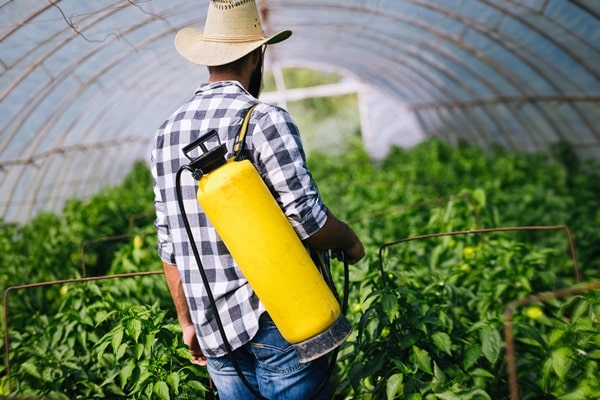
Pesticides play a significant role in modern agriculture. They protect crops from damage caused by pests and diseases, ultimately contributing to better yield and food security. However, the residues left on fruits and vegetables can be a concern for consumers. While beneficial for crop production, these chemicals can have adverse effects if ingested regularly.
The health concerns associated with pesticide residues are manifold. They range from minor ailments to more severe health issues, including hormonal imbalances and immune system disruption. Additionally, the environmental impact of these chemicals cannot be ignored. Pesticides can contaminate soil and water bodies, affecting biodiversity and ecosystem health. This dual concern for human and environmental health makes understanding and mitigating the impact of pesticides in agriculture crucial.
Effective Washing Techniques
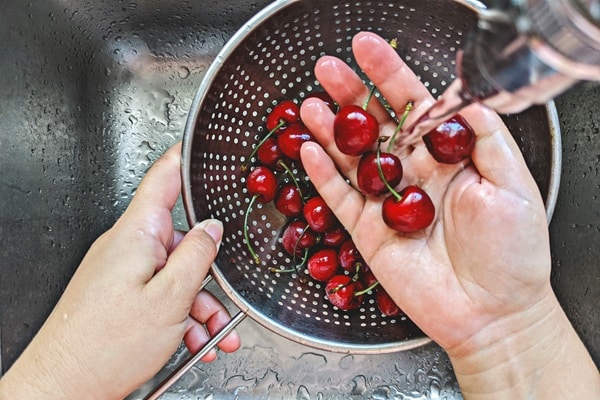
Traditional washing methods, such as rinsing under running water, can be effective in removing some contaminants from the surfaces of fruits and vegetables. For more thorough cleaning, using brushes can help dislodge dirt and residues, especially from produce with rough surfaces like melons and root vegetables. However, these methods may not be fully effective in removing all types of contaminants, particularly those that are more adherent.
For enhanced cleaning, several advanced solutions can be employed. A vinegar solution, for example, has been shown to be effective in reducing the presence of certain pesticides and bacteria. Additionally, commercial fruit and vegetable washes are formulated to target and remove a wider range of contaminants. It’s essential to choose a method that not only cleans effectively but also maintains the integrity and nutritional value of the produce.
Handling Organic Produce
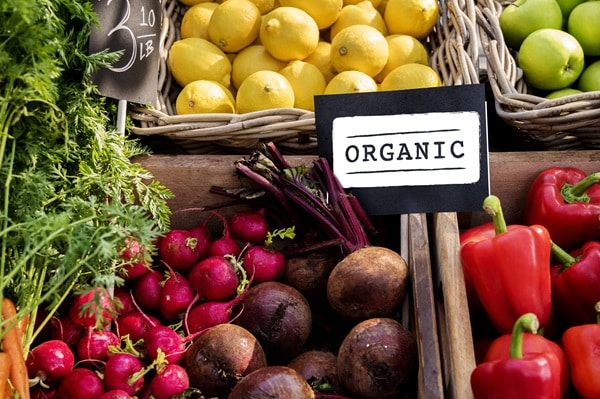
There’s a common misconception that organic fruits and vegetables are free from all types of contaminants and, therefore, don’t require washing. While organic produce is grown without synthetic pesticides, they can still be exposed to natural pesticides and environmental pollutants. Furthermore, organic produce can come into contact with various contaminants during handling and transportation, similar to conventionally grown produce. Thus, washing organic fruits and vegetables remains an essential step in food preparation.
The approach to washing organic produce should be as diligent as with non-organic. Organic fruits and vegetables can benefit from gentle yet effective cleaning methods, such as rinsing under cold water or using a soft brush for tougher skins. It’s also important to wash organic produce even if you plan to peel it, as contaminants can transfer from the skin to the flesh when peeling or cutting. This highlights the importance of thorough washing as a universal practice, regardless of the produce’s organic status.
Reducing the Risk of Foodborne Illnesses

Proper handling and washing of fruits and vegetables play a crucial role in reducing the risk of foodborne illnesses. These illnesses, often caused by pathogens like Salmonella or E. coli, can be minimized by maintaining cleanliness in the kitchen. This includes washing hands and surfaces before and after handling produce. Additionally, proper storage of fruits and vegetables is essential to prevent the growth of harmful bacteria and to preserve their quality and nutritional value.
Washing fruits and vegetables is a key step in preventing foodborne illnesses. This process helps in removing bacteria and other pathogens that can cause illness. It’s particularly important for produce consumed raw, as cooking typically kills most bacteria. The practice of washing produce should be a regular habit, integral to kitchen hygiene and food safety. By doing so; you can significantly reduce the likelihood of foodborne illnesses and enjoy your fruits and vegetables with peace of mind.
The Environmental Perspective
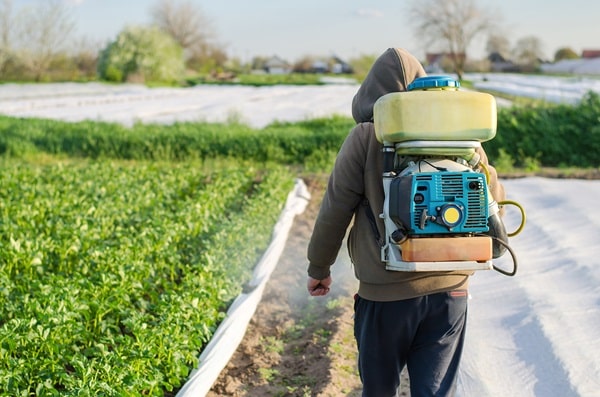
The widespread use of pesticides in agriculture has significant environmental implications. These chemicals can leach into the soil and waterways, causing pollution and harming wildlife. The impact extends beyond the immediate farming area, affecting biodiversity and the health of ecosystems. This environmental concern adds another layer to the importance of washing fruits and vegetables, as it helps to minimize your indirect consumption of these harmful substances.
Embracing sustainable farming practices is another aspect of this environmental perspective. Integrated pest management and supporting local and organic farms are practices that help reduce the reliance on harmful pesticides. By choosing produce from these sources, consumers can contribute to a healthier environment. However, even with these practices, washing fruits and vegetables remains crucial to ensure the removal of any residual contaminants. This reinforces the idea that washing produce is not only a health measure but also an environmental consideration.
Be Proactive in Preventing Foodborne Illnesses
As you’ve explored, the simple act of washing fruits and vegetables holds great significance for your health and the environment. While often understated, this practice is a key defense against contaminants and foodborne illnesses. By adopting thorough washing techniques and being mindful of your choices, you can significantly improve your dietary safety. Let’s commit to making the washing of produce a non-negotiable part of our food preparation routine. Doing so can significantly impact your health and contribute positively to the environment. Start today and witness the change in your well-being.


